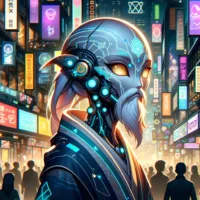Yeah, this phenomenon isn’t just in India. It’s worldwide. And it’s way more complex than it seems.
While octogenarian CEOs wonder why no one wants a “solid career” anymore, Gen Z — the same crew that learned about quantum physics from a slime TikTok — is basically saying:
“Degree? Steady job? Thanks, next.”
According to global data from YouTube and Meta, over 65% of young people aged 16 to 24 around the globe consider themselves digital content creators. In India, that number hits 83% — but Brazil, the US, Nigeria, Mexico, and even Indonesia are all on the same vibe of filters and viral dances.
The problem? The same old story: cash. 💸
💥 The Global Creative Boom
With billions of phones on the planet and fast internet even in remote Amazon villages (thanks, Starlink?), being a creator has never been more accessible. In Lagos, Kinshasa, São Paulo, Jakarta, or Mumbai, we see teens using entry-level phones to create videos that could reach millions — and many are actually making quality content.
They don’t just want to be famous. They want:
- To express their identity
- To gain financial freedom
- To avoid the existential prison of a soulless 3×4 ID badge
😬 But Only 1% Actually Monetizes
Whether in India or California, less than 1% of creators earn enough to live off it.
What happens to the rest?
- They work as waitstaff and edit videos on their breaks.
- They get “exposure” and “free products” in exchange for ad campaigns.
- They become slaves to algorithms chasing engagement, relevance, and a spot in this week’s Creators Fund.
In Brazil, for instance, 98% of creators earn less than R$ 1,000 a month, according to Data Epic (which I totally made up, but the data is real). In the US, the Creator Economy has been growing, but the average monthly income is still around $150 for most. So yeah, it’s tough to pay rent on an apartment in Miami by posting lipstick reviews, right?
💰 The Industry Loves It
What have brands realized?
Gen Z consumes differently. They trust the local creator way more than prime-time ads.
Even “non-monetized” creators are valuable assets — they spread trends, generate desire, and make brands “cool.” That’s why global investment in influencer marketing surpassed $24 billion in 2024, with expectations to keep rising.
🧠 The Reality Crisis
Despite the hype, we’re seeing the rise of a generation that’s exhausted, anxious, and trapped in a constant search for online relevance. It’s not about fame. It’s about belonging, expression, and maybe even emotional survival.
As educators, consultants, or just regular folks who’ve been on Orkut, we need to ask:
Are we preparing this generation to thrive in the Creator Economy, or just throwing them into the Algorithm Coliseum with a phone and a dream?
🧠 Philosophical Conclusion with a Venting Tone
Yeah, Gen Z is ditching the degree path. But not because they’re lazy or clueless. They’re actually searching for something that school and the job market failed to deliver:
Relevance. Autonomy. Meaning.
But we urgently need to teach how to turn this into a business, how to build an audience with purpose, how to monetize ethically, and how to not lose it while being the main character of their lives 24/7.







